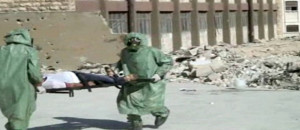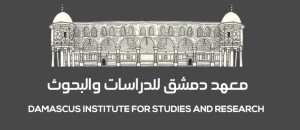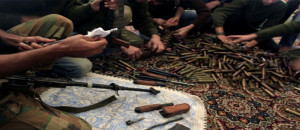Lack of funds and quality weaponry may enable the Islamist Al-Nusra Front – a group classified as a terror organization by the US and other Western countries — wrest control of Syria’s southern province of Daraa away from the opposition’s Free Syrian Army, an FSA spokesman told The Times of Israel on Sunday
The spokesman, who identified himself as Abu Omar Al-Hourani, said in a phone interview from Daraa that Al-Nusra’s higher salaries and high-quality weapons have spurred many local FSA soldiers to break ranks and join the Islamist group. He estimated that 80 percent of Al-Nusra’s fighting force in Daraa is currently comprised of Syrians, and the other 20 percent of foreign fighters.
“Daraa is partially controlled by Al-Nusra Front and affiliated groups, but it could fall entirely to their hands,” he said. “They receive huge external support, but we haven’t managed to figure out from where.”
Hourani said that Free Syrian Army fighters are “moderate Muslims” who believe in “a free democratic Syria open to all,” whereas Al-Nusra envisions a Syria where “the Islamic religion will control everyone.”
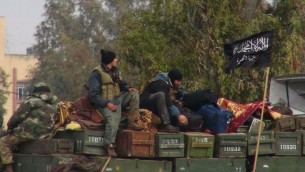
This January 2013 citizen journalism image shows rebels from al-Qaeda affiliated Jabhat al-Nusra, as they sit on a truck full of ammunition, at Taftanaz air base, that was captured by the rebels, in Idlib province, northern Syria. The photo was authenticated based on its contents and other AP reporting. (photo credit: AP Photo/Edlib News Network, ENN, File)
“They have no notion of pluralism,” he said, but emphasized that Al-Nusra does not share Al-Qaeda’s extreme views; represented in Syria by the Islamic State of Iraq and the Levant (ISIL).
Villages immediately to the east of Daraa such as Taiybeh, Al-Jeeza and Al-Musayfrah are entirely controlled by Al-Nusra, which currently holds some 30 positions in and around the city. Meanwhile, the city itself and its western suburbs are still held by the Free Syrian Army.
Al-Nusra has managed to obtain superior weapons from international black markets, including 23 millimeter anti-aircraft guns, Soviet Grad missiles, and SA-7 surface to air missiles. It has also managed to capture tanks from the Assad regime, he noted.
“Today you can even buy weapons from Syrian Assad officers and get whatever you want,” he said. “They don’t care who buys, all they care about is making money.”
Syria’s porous border with Iraq also allows for the flow of weapons into Islamist hands.
In addition to its military power, Al-Nusra is engaged in civilian projects such as sanitation, road paving, and medical rescue.
“They do this to win support among the population,” he said.
Hourani said that during meetings held in Jordan with Western and Arab states supporting the rebels, his forces have repeatedly requested anti-aircraft and anti-tank weapons. But fearing these weapons may fall to the hands of extremist fighters, donor states refuse to supply them. The FSA suggested that the West track the weapons using GPS systems; or even send Western teams into Syria to fire advanced American Stinger anti-aircraft missiles at regime airplanes under FSA guard, but to no avail.
“The [regime’s] explosive barrels are ravaging us,” he pleaded.
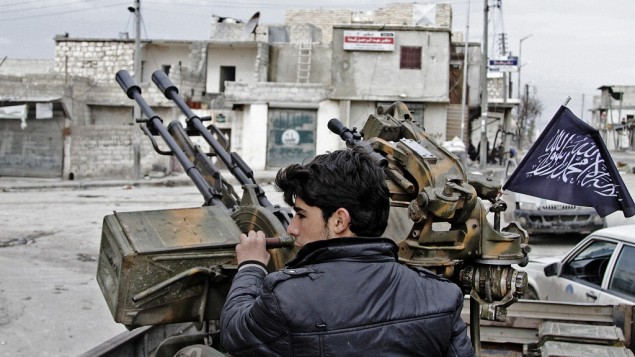
A Free Syrian Army fighter sits behind an anti-aircraft weapon, February 8, 2013. (photo credit: AP/Abdullah al-Yassin)
About a month ago, a shipment of 600 advanced anti-tank TOW missiles was sent to the FSA’s Syria Revolutionaries Front fighting in the northern provinces of Idlib and Aleppo, but none of these weapons reached his forces in Daraa, he said. FSA fighters in Daraa have only received machine gun ammunition and the occasional machine gun or sniper rifle, as well as a number of HJ-8 Chinese anti-tank missile systems. But these weapons too have also stopped reaching the rebels over the past six months.
The clash between the FSA and Al-Nusra came to a head on May 3, when the Islamist group abducted Colonel Ahmad Al-Ni’meh, the FSA commander of Daraa province, along with five other FSA commanders. According to Hourani, Al-Nusra accused him of collaborating with American and British intelligence, as well as supporting peace with Israel.
In a statement issued on Sunday, the Free Syrian Army in Daraa announced that it was halting all military cooperation with Al-Nusra pending Al-Ni’meh’s release.
A senior Israeli intelligence source told the Associated Press in January that Israel was reassessing its neutrality toward the civil war in Syria for fear of a possible spillover of jihadist fighters from Syria into Israel.
Israeli aid and public opinion
Hourani said that two men from his unit, badly injured in fighting, were treated in Israel. The health care provided by Israel has caused the people of Daraa to regard Israel as a “friendly country,” irrespective of past wars between Israel and Syria.
“Israel’s treatment is different from that of other countries,” he said. “Even Arab countries prevent the entry of Syrians. Inside Syria people are dying of hunger, and outside they’re dying of humiliation.”


